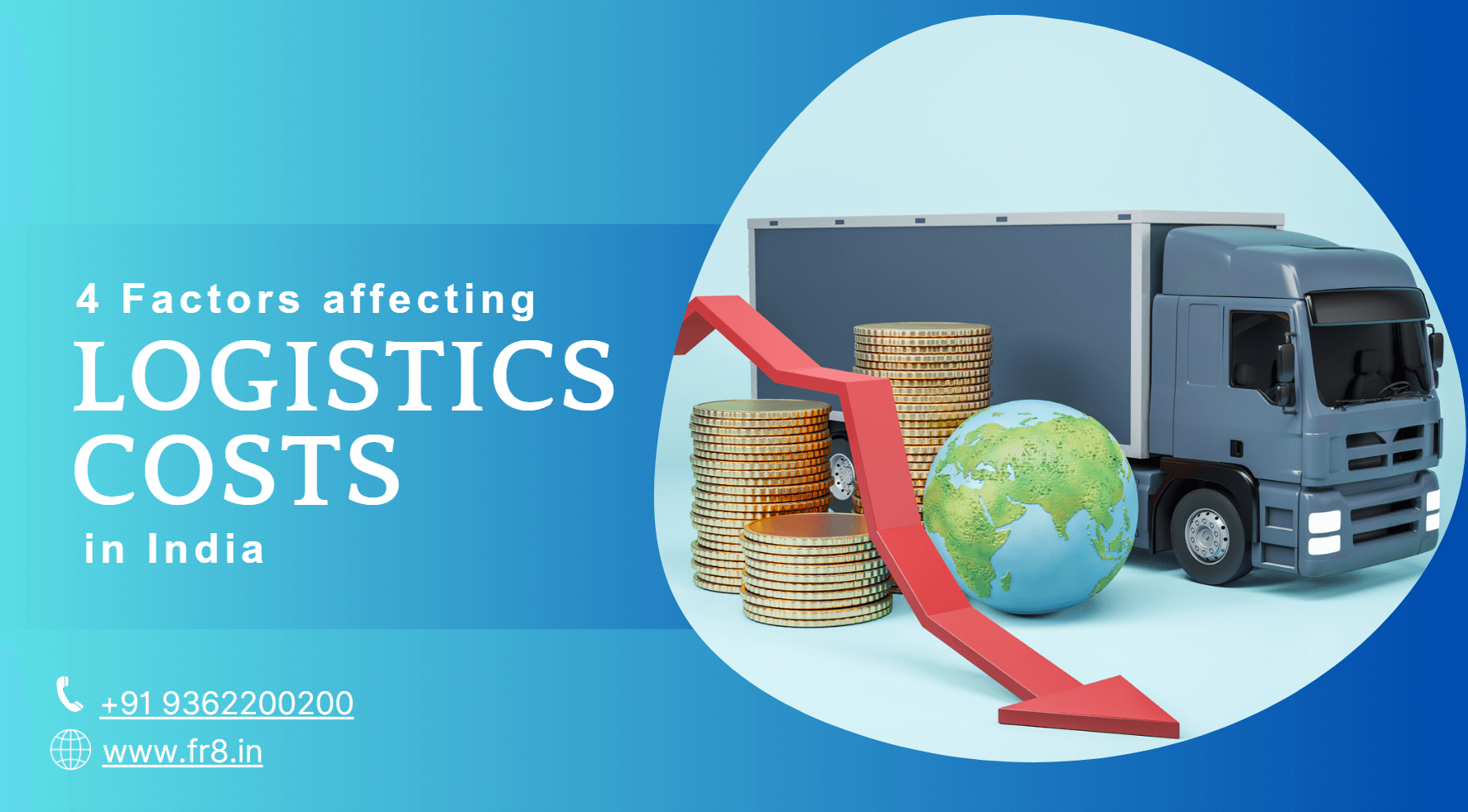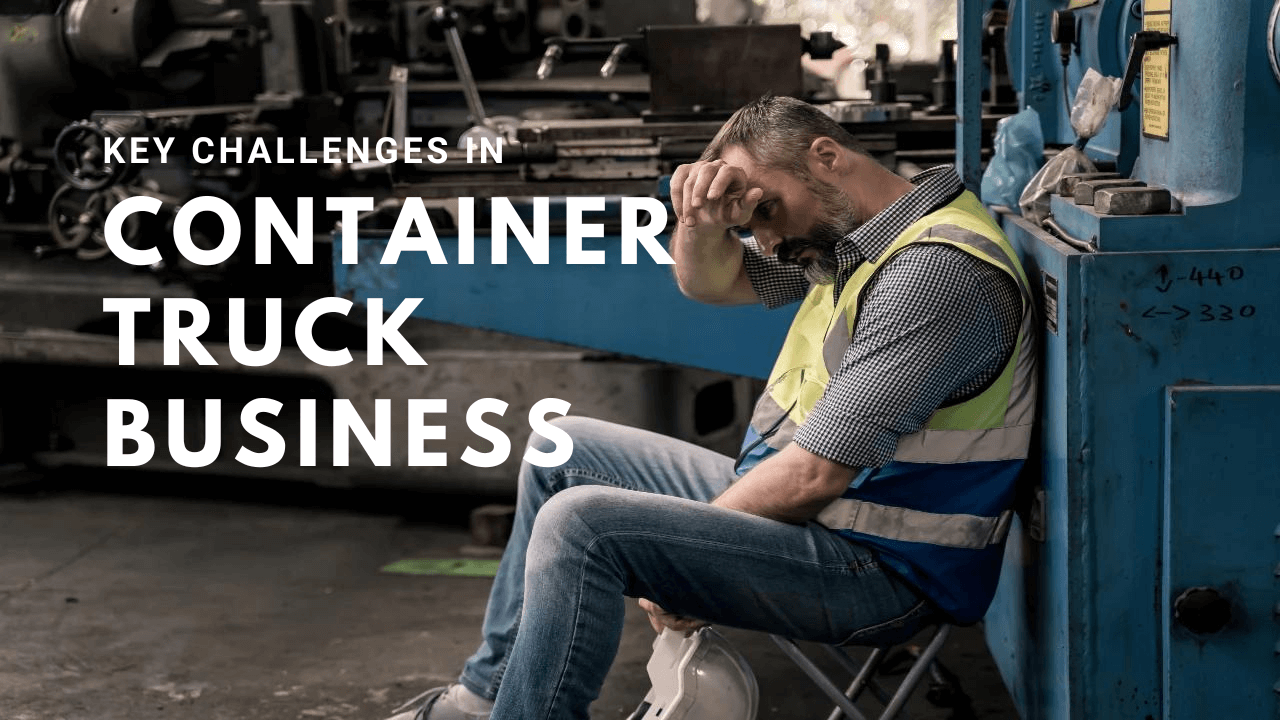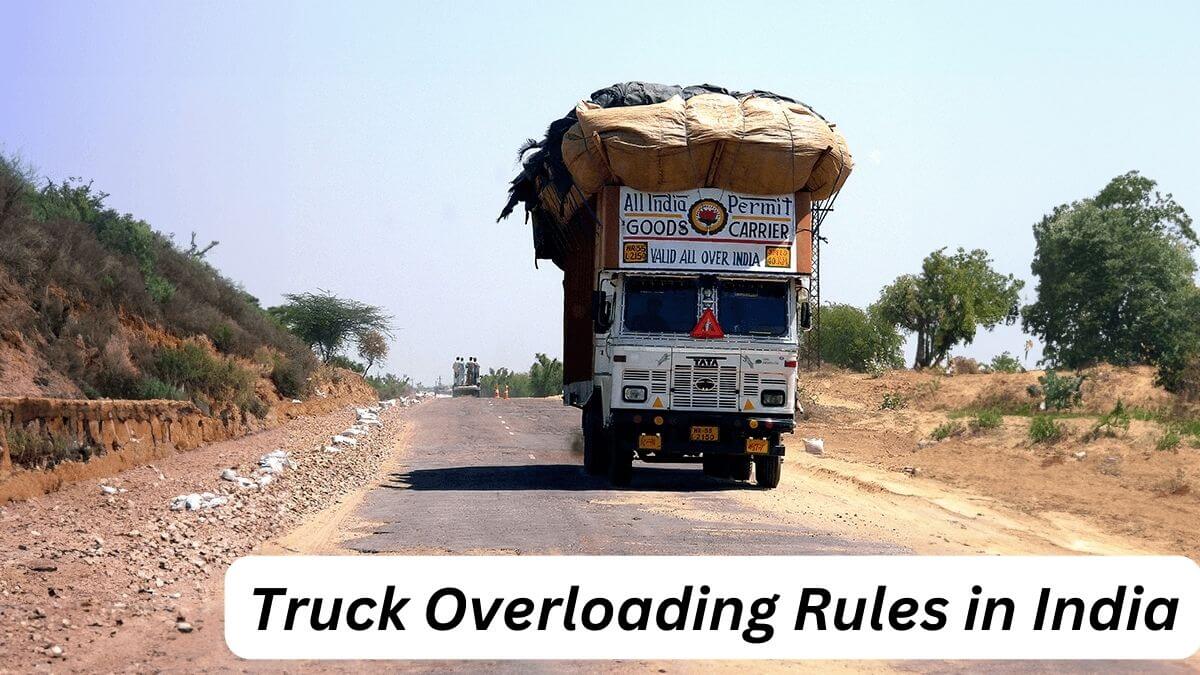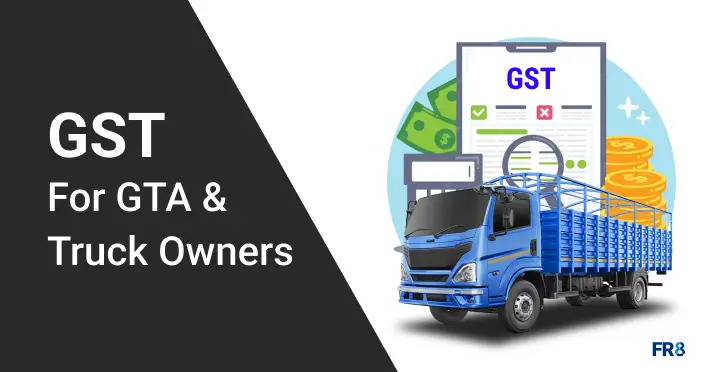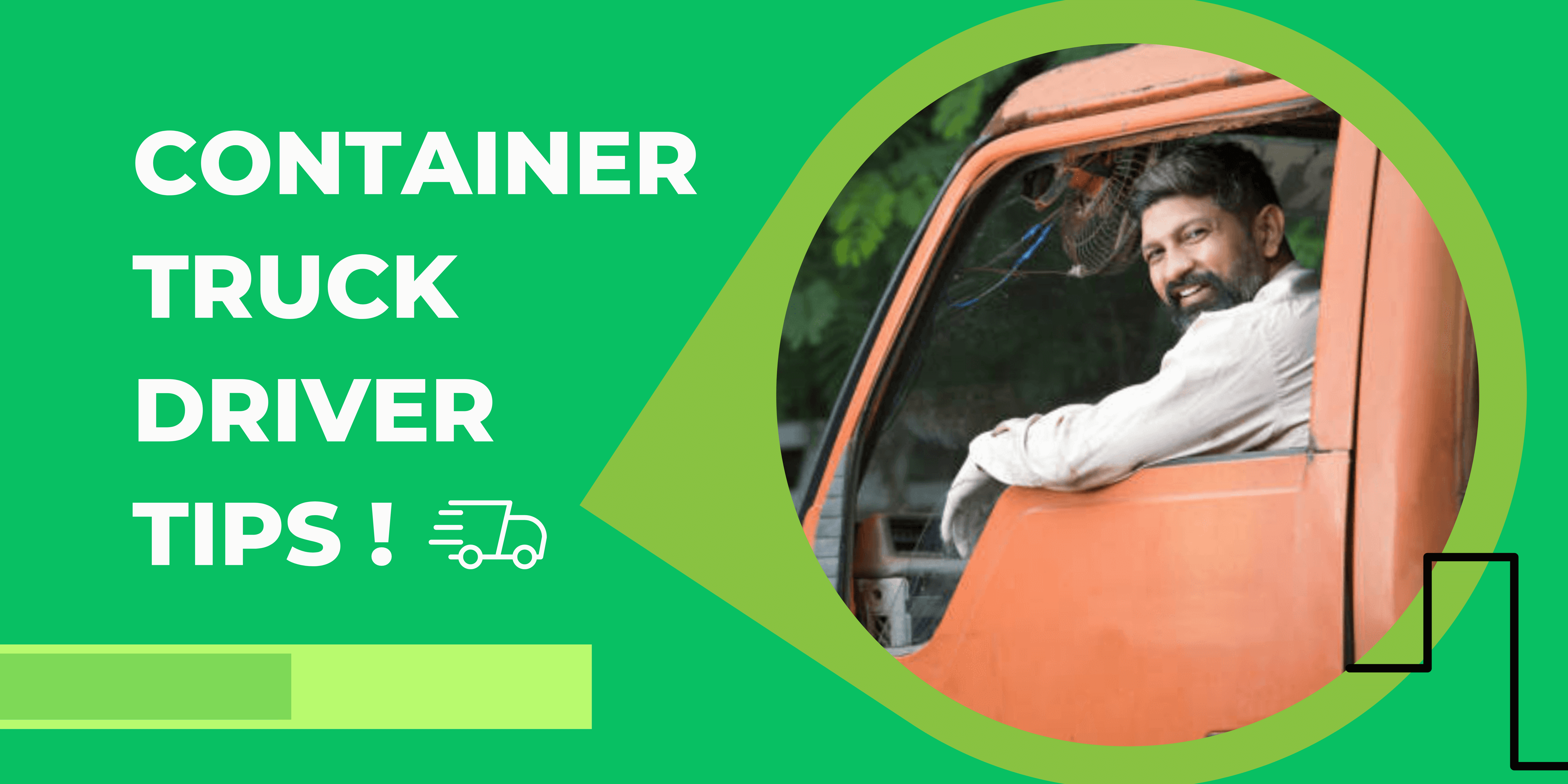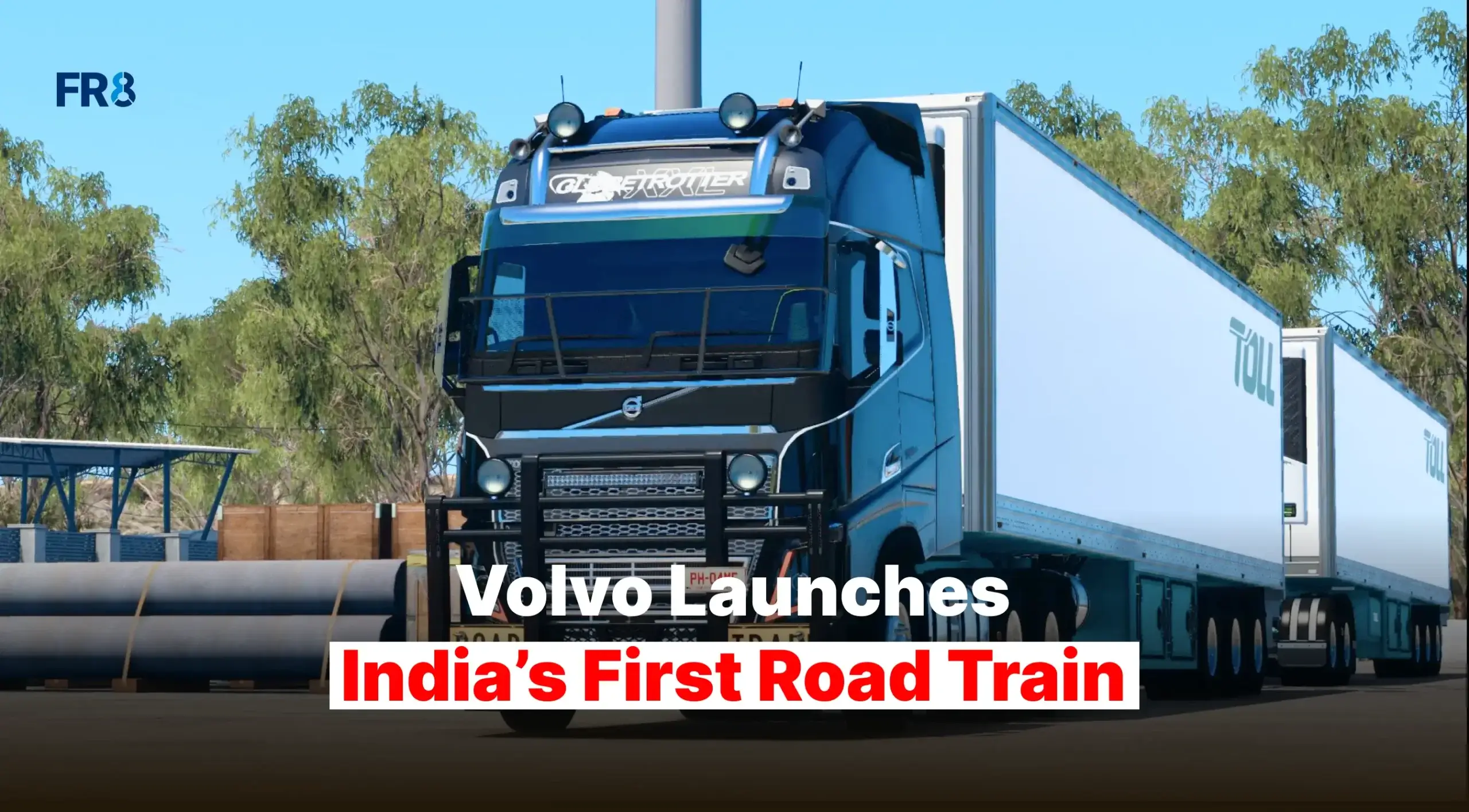
The Indian trucking industry is witnessing a major innovation with Volvo Trucks introducing India’s first “Road Train.” Designed to boost cargo capacity and efficiency, this new concept is already on the roads, with Delhivery Ltd. being the first to deploy it between Nagpur and Bhiwandi. But what does this mean for long-haul trucking in India? Let’s break it down.
Table of Contents
What is a Road Train?
A road train is essentially a tractor pulling multiple trailers, extending up to 25.25 meters. Volvo’s version consists of the FM 420 4×2 tractor unit connected to a 24-foot containerized intermediate trailer and a 44-foot semi-trailer. The result? A total cargo capacity of 144 cubic meters—50% more than a traditional semi-trailer.
For logistics companies, this means fewer trips for the same load, lower fuel consumption per ton-km, and potentially reduced operational costs. To ensure its viability, the Ministry of Road Transport and Highways (MoRTH) and the Automotive Research Association of India (ARAI) have certified the Volvo FM 420 4×2 Road Train for use between Delhivery’s hubs in Nagpur and Bhiwandi.
This pioneering initiative was formally inaugurated in Nagpur by Union Minister of Road Transport and Highways, Nitin Gadkari, further highlighting its importance in India’s logistics landscape.
Safety and Infrastructure Challenges
Volvo has equipped the road train with advanced safety features, including an Electronic Braking System (EBS), Electronic Stability Program (ESP), a 360-degree camera system, and a self-steering axle. While these features enhance maneuverability and security, one concern remains—are Indian highways ready for such long-haul giants?
Longer vehicles require better road infrastructure, wider turning spaces, and optimized logistics hubs. While expressways like the Delhi-Mumbai corridor are suitable, handling these massive trucks in congested areas might be a challenge.
What This Means for Indian Trucking
At FR8, we are always looking at ways to improve efficiency in truck transportation. The road train concept is exciting, but it’s yet to be seen how scalable it is for broader applications.
While Volvo’s Road Train offers greater efficiency, its impact on Indian highways raises concerns. Despite making up only 4.9% of total road length, highways account for 60.5% of road accident deaths, with speeding causing 72% of accidents. Maneuvering road trains on India’s narrow roads and sharp turns could also be a challenge, especially in congested areas.
Will regulations adapt to allow widespread use? Will more logistics players invest in such vehicles? For now, Volvo’s Road Train is a bold step in redefining freight movement in India. Whether it becomes a game changer or remains a niche solution will depend on how well it integrates with India’s complex logistics landscape.

Yoga Laxmi
Sometimes English is just silly. That's what got me hooked on writing in the first place. Why on earth can't "grateful" be spelled "greatful"? Here's the thing, I love untangling the knots of language just as much as I love untangling the complexities of logistics. In my blog posts, I'll do both! No "greatful" mistakes here, just good info and a smooth journey through the world of shipping.



